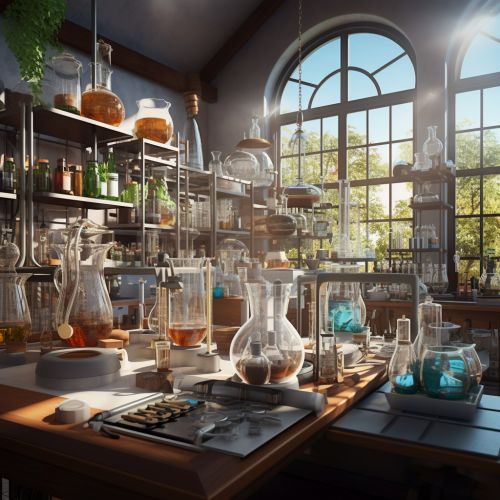List of Nobel laureates in Chemistry
Overview
The Nobel Prize in Chemistry is awarded annually by the Royal Swedish Academy of Sciences to scientists who have made outstanding contributions in the field of Chemistry. The award was established by the will of Alfred Nobel, the inventor of dynamite, who left his entire estate to fund annual prizes in six areas, including Chemistry. The first Nobel Prize in Chemistry was awarded in 1901.
History
The Nobel Prize in Chemistry has been awarded 111 times to 184 Nobel laureates between 1901 and 2021. The Prize is not awarded posthumously; however, if a person is awarded the prize and dies before receiving it, the award is presented posthumously. The award is presented annually on December 10th, the anniversary of Nobel's death, in a ceremony at the Stockholm Concert Hall.
Laureates


The laureates of the Nobel Prize in Chemistry have made significant contributions to the field, ranging from the discovery of new elements and compounds, to the development of new techniques and theories. The laureates come from various fields within Chemistry, including Physical Chemistry, Organic Chemistry, Inorganic Chemistry, Biochemistry, and Analytical Chemistry.
1901-1950
The first laureate of the Nobel Prize in Chemistry was Jacobus Henricus van 't Hoff of the Netherlands, who was awarded the prize in 1901 for his work on rates of reaction, chemical equilibrium, and osmotic pressure. Other notable laureates during this period include Marie Curie, who was awarded the prize in 1911 for her services to the advancement of chemistry by the discovery of the elements radium and polonium, and Irving Langmuir, who was awarded the prize in 1932 for his discoveries and investigations in surface chemistry.
1951-2000
The period from 1951 to 2000 saw a diverse range of research being recognized by the Nobel Prize in Chemistry. Notable laureates during this period include Linus Pauling, who was awarded the prize in 1954 for his research into the nature of the chemical bond and its application to the elucidation of the structure of complex substances, and Dorothy Hodgkin, who was awarded the prize in 1964 for her determinations by X-ray techniques of the structures of important biochemical substances.
2001-Present
The period from 2001 to the present has seen the Nobel Prize in Chemistry awarded for a wide range of research areas. Notable laureates during this period include Roger Y. Tsien, who was awarded the prize in 2008 for the discovery and development of the green fluorescent protein, and Emmanuelle Charpentier and Jennifer Doudna, who were awarded the prize in 2020 for the development of a method for genome editing, known as CRISPR-Cas9.
